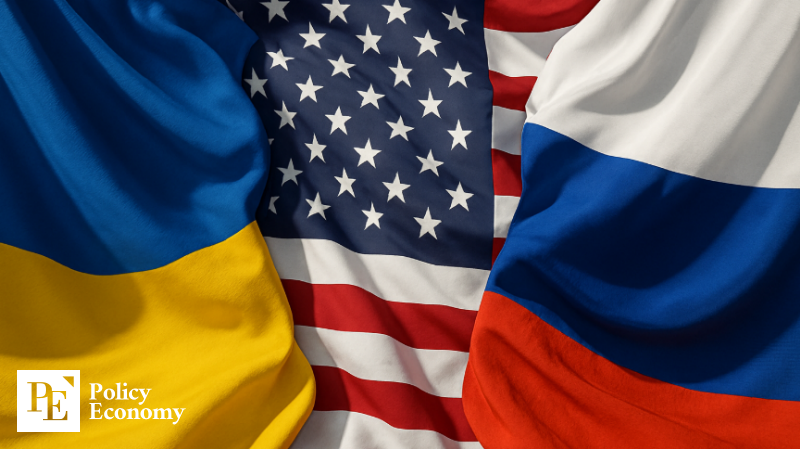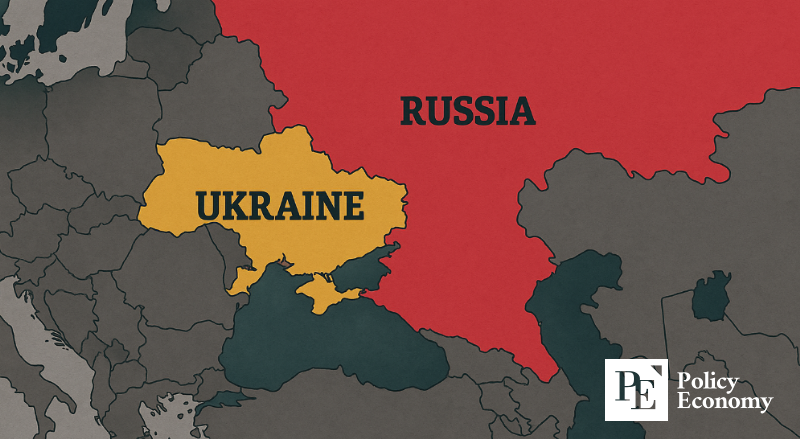Putin Declares Retaliation Against Ukraine to Trump — Peace in Ukraine War Drifts Further Away
Input
Modified
U.S.-Russia Summit Call Discusses Ukraine’s Surprise Attack Trump: “It Was Not a Conversation That Would Lead to Immediate Peace” Putin: “Stressed the Need to Respond to Recent Airbase Attacks”

In a volatile geopolitical landscape, where hopes for peace in Ukraine flicker and fade with each new development, a phone call between two of the world’s most influential leaders has deepened uncertainty rather than dispelled it. Former U.S. President Donald Trump and Russian President Vladimir Putin spoke for the fourth time since peace talks began, but instead of bridging divides, their exchange underscored just how wide the gap remains. With Ukraine intensifying its military offensives and Russia vowing retribution, the momentum behind ceasefire negotiations is now in serious jeopardy.
Putin Signals Intent to Retaliate Against Ukraine
On June 4, Trump revealed via his social media platform, Truth Social, that he had spoken with Putin for 75 minutes. The conversation, unannounced and unexpected, came just two weeks after their previous dialogue on May 19. While Trump has taken a personal interest in facilitating a ceasefire and potentially ending the war, his latest call with the Kremlin leader delivered few signs of progress.
“President Putin made it clear that a strong response is necessary to the recent Ukrainian attacks on Russian airfields,” Trump wrote. “We had a good conversation, but it was not one that will immediately lead to peace.”
The urgency of the call was catalyzed by a daring Ukrainian drone offensive on June 1. In what Kyiv described as one of its most successful operations since Russia's 2022 invasion, 117 drones struck four Russian airbases deep inside Russian territory. Among the high-value targets reportedly damaged were 41 military aircraft, including the supersonic Tupolev Tu-160 strategic bombers. The Ukrainian military estimated the total cost of destruction at approximately USD 7 billion. These strikes extended far beyond the typical frontlines, demonstrating Ukraine’s evolving drone capabilities and strategic ambition.
From Ukraine’s perspective, the attack was a calculated show of strength, made possible by 18 months of painstaking preparation. It was also a psychological victory, aimed at shifting the battlefield dynamic. The government quickly labeled it a milestone achievement in their defensive campaign. Yet, from Moscow’s standpoint, it was a provocation—one that left little room for negotiation.
During the phone call, Putin expressed outrage, reportedly telling Trump in a “strong tone” that retaliation was inevitable. While Trump attempted to dissuade him, those efforts appeared fruitless. Putin remained firm and went as far as referring to Ukraine as "terrorists," a linguistic escalation that all but confirms a further breakdown in diplomatic dialogue.
The atmosphere of the conversation, while cordial on the surface, signaled a grim reality: neither side was ready to concede. For Putin, the drone attack was not just a military challenge but a personal affront—one that demands a visible, forceful reply. For Trump, who has cast himself as a broker of peace, this latest interaction seems to suggest a retreat from earlier optimism.
New York Times: “Trump Portrays Himself as a Bystander”
The faltering peace process had initially shown signs of life through two rounds of direct negotiations between Russia and Ukraine. The first took place on May 16, followed by a second on June 2 in Istanbul, Türkiye. The meetings marked a rare moment of face-to-face dialogue between the two nations since the full-scale invasion began. While the parties succeeded in arranging a prisoner exchange, they failed to narrow the gulf over the larger issues of ceasefire and peace terms.
Ukrainian President Volodymyr Zelensky, eager to push the momentum forward, proposed a four-party summit involving the United States and Türkiye. The idea, however, received a lukewarm response from the Kremlin, which remained skeptical of external involvement.
As speculation grows about Russia’s retaliatory plans, concerns mount that the entire peace process—largely driven by Trump’s diplomatic overtures—could unravel. Adding to the uncertainty is Trump’s own ambiguity about his role. The New York Times observed that Trump now appears to frame himself as a “bystander,” giving the impression that Russia’s response to Ukraine’s actions is inevitable and beyond his influence.
While Trump’s aides insist that he is frustrated with both Putin and Zelensky, they also acknowledge that he shows more personal respect toward the Russian leader. This sentiment aligns with Trump’s measured tone in public statements, where he refrains from condemning Russia’s aggression and instead emphasizes his desire to end the conflict.
This latest stance contrasts sharply with his earlier declarations. After a two-hour call with Putin on May 20, Trump had expressed confidence in initiating peace talks, suggesting that a ceasefire and eventual war termination were within reach. His rhetoric then was hopeful; he believed that direct dialogue between the warring parties could yield results. Now, however, his communications focus more on Putin’s resolve and the scale of Ukraine’s provocations—an implicit admission that the situation is becoming more intractable.

Kremlin: “Time Needed to Review Exchanged Memoranda”
Even amid escalating hostilities, both Russia and Ukraine are keeping the door to diplomacy slightly ajar—at least for now. Kremlin spokesperson Dmitry Peskov confirmed that the draft memoranda exchanged during the second round of negotiations are currently under review and must be evaluated before a third round of talks can be scheduled.
According to Russian state media outlet TASS, Ukraine has suggested convening the next round between June 20 and 30. However, Peskov cautioned against setting concrete dates without adequate preparation. “Time is needed to review the exchanged draft memoranda,” he stated. “Once both sides are ready, they will agree on the schedule for the next round of talks.”
He also emphasized the difficulty in establishing a regular timetable for negotiations. “It is hard to standardize the frequency and regularity of these talks,” Peskov explained. “This depends on the continued willingness of both negotiating parties. In this context, setting a fixed schedule is nearly impossible.”
Nonetheless, diplomatic sources suggest that Istanbul remains the likely venue for the third round. Russian Deputy Foreign Minister Alexander Grushko confirmed that alternative locations—such as the Vatican—are not being considered at this time. “Choosing a new venue is not under consideration,” he said firmly, indicating that despite the turmoil, some structure remains in place.
But that structure is fragile. Each new act of aggression threatens to derail the process entirely. Putin’s promise of retaliation, Ukraine’s bold attacks, and Trump’s shifting tone all point to a peace process that is slowly unraveling. The channels for negotiation are still open—but the path through them grows narrower by the day.





















